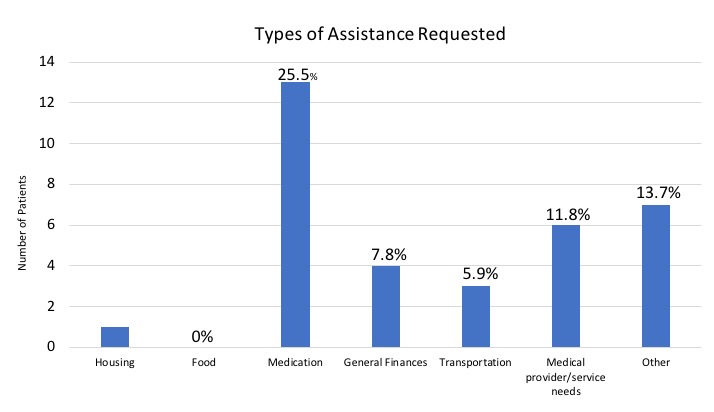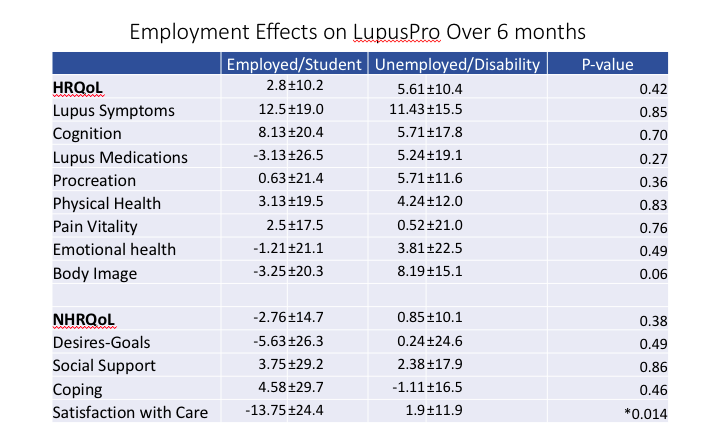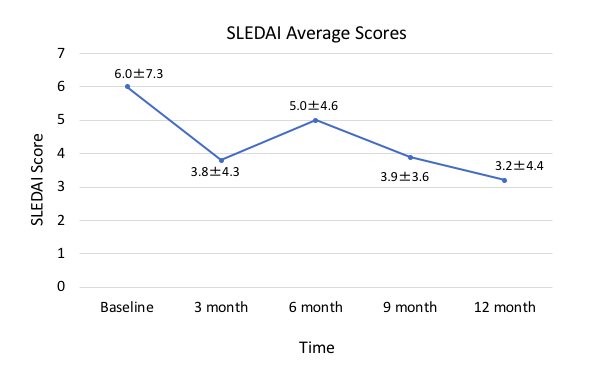Session Information
Session Type: Abstract Session
Session Time: 2:00PM-3:30PM
Background/Purpose: Despite recent progress in diagnosis and treatment of SLE minorities continue to bear the greater burden of disease with disproportionately higher morbidity and mortality. Barriers to care include access to preventive and specialty healthcare, economic resources, and health literacy. The goal of this study is to measure the impact and acceptability of a Lupus Patient Navigator Program (LPNP) providing interventions to reduce barriers to care for patients at high risk of poor outcomes.
Methods: Self-identified minority patients with SLE ≥18 years old at Medical University of South Carolina or University of Alabama were invited to participate if they were prescribed ≥1 immunosuppressant, and: 1) had ≥1 missed clinic or lab visit in the past 6 months, or 2) nonadherence to medical therapy, or 3) newly diagnosed SLE. The LPNP is modeled after the CDC STEPS to CARE toolkit. Participants had visits with the patient navigator (PN) every 3 months with monthly and as-needed check-ins by phone or email, with resources provided throughout the 12-month study duration. Patient-reported questionnaires included Type of Assistance Requested, LupusPRO for quality of life (QoL), SLEDAI, and Patient Satisfaction with Logistical Aspects of Navigation / Interpersonal Relationship with Navigator (PSN-L, PSN-I) Scales.
Results: 51 patients (96% female, 96% Black) with SLE completed at least 6-months, and 44 to date have completed 12-month assessments. Of the 51 patients, 90% were high school graduates, 86% had health insurance, 48% were unemployed/disabled, 33% were currently employed. A wide range of types of PN assistance were requested (Figure 1), with assistance with medications being most common at 25%. In addition, LupusPRO measures improved from baseline to the 6-month visit in most QoL domains. Results demonstrated a greater positive improvement in patient’s QoL in those that are unemployed/disabled compared to employed participants (Table 1). SLEDAI scores from baseline to 1 year also improved from an average of 6.0 to 3.2 (Figure 2). Lastly, patients were satisfied with assistance received from the patient navigator in areas such as receiving/interpreting medical information and obtaining resources as indicated in the PSN-L, PSN-I Scales.
Conclusion: Implementation of a LPNP shows promise in addressing significant barriers to care for patients with SLE at high risk for poor outcomes, with participants to date reporting improved QoL and high satisfaction with the PN.
To cite this abstract in AMA style:
Karim S, Link G, Wilson D, Oates J, Gilkeson G, Singh J, Kamen D. Lupus Patient Navigator Program to Improve Healthcare Barriers for Minority Patients [abstract]. Arthritis Rheumatol. 2023; 75 (suppl 9). https://acrabstracts.org/abstract/lupus-patient-navigator-program-to-improve-healthcare-barriers-for-minority-patients/. Accessed .« Back to ACR Convergence 2023
ACR Meeting Abstracts - https://acrabstracts.org/abstract/lupus-patient-navigator-program-to-improve-healthcare-barriers-for-minority-patients/



